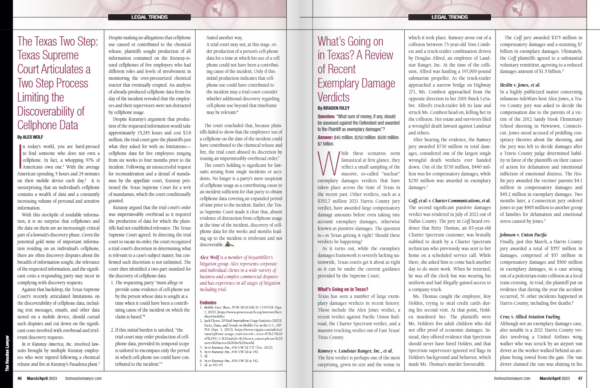With a deep understanding of your business alongside clear and honest communication, we help clients face challenges fearlessly.
Contact us today to learn more about our services and how we can help drive solutions.
When “Presence” Isn’t an Option: Creating a Valid Will in a Global Pandemic
May 1, 2020
COVID-19 and the “Stay Home, Work Safe” order in effect in Harris County has brought to the forefront how necessary technology is to our daily lives. We can bank online, workout online, and visit our families online. Amazingly, the Harris County court system is even holding hearings and conducting trials online. It is incredible to see all the things that can be accomplished without ever leaving the comfort of your home.
However, one of the few things that still requires an in-person meeting in Texas is the execution of a will. The lethality of COVID-19, and the desperation of some to get one’s affairs in order quickly, has raised the question of whether we may see a shift in the requirements for an enforceable will under Texas law in the case of an emergency.
A few states allow for the electronic execution of wills. Specifically, Nevada has a statutory framework for the execution of electronic will[1]. The requirements are similar to that of a written will, except that the will may be executed electronically by the testator[2].
In response to COVID-19, Governor Abbott temporarily suspended certain statutes that required physical appearance before a notary to execute a self-proved will, a power of attorney, a directive to a physician, or oath of an executor, administrator, or guardian, and rather permitted such appearances to occur via videoconference.
But Texas has not gone so far as to alter the requirement of the physical presence of witnesses for a will execution. With some exceptions, for a will to be valid in Texas, it must be in writing, signed by the testator, and requires two non-inheriting witnesses to sign the will in their own handwriting in the presence of the testator[3]. The testator must also be at least 18 years of age and of a sound mind[4]. “Presence” requires physical presence under Texas law, and therefore eliminates the opportunity for an electronically executed will[5].
In these uncertain times, quick estate planning may be a necessity. While much can be done electronically in terms of the will preparation, Texas, along with the majority of states, does not provide an avenue for the execution of a will electronically. It remains to be seen whether Texas will shift its position requiring an in-person execution of a will, but once the dust settles we may see a push for a more relaxed standard, especially in times of crisis. Do not hesitate to reach out to the Probate Team at BoyarMiller if you have any questions regarding the validity of your will or the will of another person that has been filed for probate.
[1] NRS §§ 133.085 – 133.088
[2] NRS § 133.085
[3] Tex. Estates Code 251.051
[4] Tex. Estates Code 251.001.
[5] See Nichols v. Rowan, 422 S.W.2d 21, 24 (Tex. App.—San Antonio 1967, writ ref’d n.r.e.).




